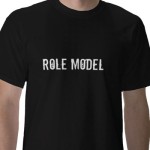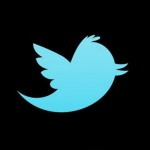 A few years ago, I was working in an organization where most of my coworkers and office visitors were amazed by my office. There were no files lying about, no bulletin boards crowded with messages and to-do lists, no plastic or metal organizing trays on my desk to serve as in- and out- boxes for stacks of paper. In fact, it probably looked to some as though no work at all was ever done in my office. That was unusual in the culture where I worked; I was the only person in my organization to have such an office. Even our president and his Number Two were usually buried under paper.
A few years ago, I was working in an organization where most of my coworkers and office visitors were amazed by my office. There were no files lying about, no bulletin boards crowded with messages and to-do lists, no plastic or metal organizing trays on my desk to serve as in- and out- boxes for stacks of paper. In fact, it probably looked to some as though no work at all was ever done in my office. That was unusual in the culture where I worked; I was the only person in my organization to have such an office. Even our president and his Number Two were usually buried under paper.
Mind you, work most certainly did occur in my office – plenty of it, in fact. I had the justly-deserved reputation for being one of the most productive employees in my organization. So you may wonder, how was this possible?
The answer is simple. I made a commitment to keeping my office free of clutter and loose papers. I arranged my work in such a way that my desk was always empty except for the one project I happened to be working on at the moment. Even so, I put the evidence of that work away before I left the office for a meeting or lunch, at the end of the day, or before I prepared for a scheduled appointment with an office visitor. That way, I was able to greet every visitor to my office and start every day with a clear desk.
Now you may wonder, why did I do this? My decision to keep my office free of visible paper stemmed from a formative experience early in my career. About 30 years ago, I was serving as a freelance writer for the president and CEO of a mid-sized cable television company in central Pennsylvania. The company published a quarterly client newsletter and it was my job to interview the president of the company before each issue and ghost write his article for him. This was an unusual opportunity for me because I was in my mid-twenties and had one-on-one meetings with a very powerful corporate leader. There was no other person even close to his stature who spent that kind of time with me back then.
The president’s office was tastefully decorated with a matched suite of cherry wood executive furniture. Behind the important-looking desk, which dominated the room, was a huge and high-backed black leather executive chair. The president was always seated on this thrown when I entered his office, and then he’d stand, smile, shake my hand, and greet me warmly as he offered me a seat. Always, the president had a clear desk with no papers in sight. Behind him sat a large closed credenza and I always imagined that piles of papers were hidden behind its closed doors. But I never knew.
The president would always begin our meeting by saying something like, “Lovely to see you again, Laura.” He took great care to call me by name. He would then engage me in some chit chat so the two of us could catch up. He’d tell me about his horses and I’d tell him about the book I was working on. Then, without fail, he would ask me if I would like something to drink and when I said yes, which I did once I got to know him better, he would press the button on his intercom and say, “Marge, would you please bring Laura a Diet Coke?” And like magic, Marge would appear in seconds to place before me on edge of the desk two leather coasters, and on them, a cold sweating can of Diet Coke and a glass filled with delicate cylindrical ice cubes. Marge would leave and after these pleasantries, the president and I would get down to business. We would talk and I would ask questions and take notes to help me write his article for him.
Every time I met with the president, I was impressed that such a successful and powerful person had so much time and attention just for me. I couldn’t figure out how he managed such a big organization with hundreds of employees without having even one piece of paper anywhere in sight in his office. In fact, I was so dazzled and confused by this feat that I told my father about it one day. Dad had worked in large corporations for most of his career and knew the behavior of presidents and other people at the top very well. “They’re all like that, all the highest-level executives,” my father told me. “They’re always well-mannered, beautifully dressed, and perfect hosts when you visit them. Always, they ask you if you’d like something to drink and always, they seem to have lots of time for pleasantries,” he said. By contrast, mid- and lower-level managers – people like my Dad — are the “worker bees” of the organization, he explained. They’re the ones buried under stacks of papers and who haven’t got time to breathe, let alone chit chat. “Think about it,” Dad said. “Does the President of the United States greet visitors to the Oval Office with lots of notes and memos tacked to a bulletin board? Do you expect that he’d have piles of papers covering his desk?” But somewhere in the White House, there’s some poor “low level grunt”, Dad said, closeted away with all the papers. It’s like that in the corporate world, too.
So how do they do it? The highest-level executives have secretaries to handle all the paper for them, Dad said. They ask Marge or Joan or Mrs. Someone-Or-Other to bring this file or that to them on command. Then they do what they have to do with the file and give it right back to her. “Presidents don’t deal with filing or calendars and they don’t have to keep track of things for themselves. That’s the secretary’s job,” my father explained. How wonderful to be a president, I thought.
I had no secretary to manage my calendar or files for me where I was working. No one screened my calls. And I was not a president. Still, I made a decision when I began to work in the organization that my office would be a “presidential” office. Right away, I bought doors for my open bookcases to hide all the things I didn’t want visitors to see – papers, my purse, and the phone book, among other unsightlies. I also bought myself a high-backed black leather executive desk chair to replace the blue fabric-covered computer task chair provided by my employer. I make good use of my file cabinet and also had a holding area hidden from view for a large pile of projects in progress. That and my sheer determination enabled me to keep my desk clear for office visitors.
Again you may wonder, why do I do this? Certainly I was not a president – really I had much more in common with the worker bees – and I had no one to help me. There were several reasons. First, it is a wonderful thing to be received in a presidential office. One feels that he or she is important and special and that a cordial host is ready and able to be of help and is truly interested. I saw it as a big part of my job to be such a host and to help to my office visitors. My presidential office was welcoming for them. Second, a presidential office gave me a certain mystique among my colleagues. I believe that my office, in combination with my professional wardrobe and bearing, helped me snag several promotions for which others were passed up. We’ve all heard the old advice that we should dress for the job we want, not for the one we have; I also kept an office for the job I wanted. And third, if truth be told, I got off on acting presidential and giving myself a presidential office was part of that. I believe I was more effective and productive because I enjoyed being in my clutter-free and welcoming work environment.
One of my colleagues told me the once that she could never keep her office the way I kept mine because she has too many things to do. I didn’t believe that and I still don’t. I worked harder than the majority of people around me and juggled an amazing number of projects at once. Two of my colleagues later took over positions I previously held, one in my actual former office. The first thing they both did when stepping into my vacated job was to put up a bulletin board and cover it with paper and then to muck up their desks with file folders and stacks of paper. No, my colleague who felt she has too many things to do to stow away the papers was making a choice. I made one too.
Some say clothes make the man. That’s true. But I also believe the office makes the man – or woman. Worker bees are rarely promoted to top positions in organizations. They get stuck in the mid-level. To be an executive, one must create the aura of an executive. The office is a huge part of that. Come visit me even today, in my new office. I’ll offer you something to drink and we’ll chat before getting down to business. You’ll see what I mean. – Dr. Laura Hills, President, Blue Pencil Institute, www.bluepencilinstitute.com
 , three different younger professionals have told me that they look up to me as their role model. These have been unsolicited comments from younger people I know in different fields and who don’t know one another. It strikes me that somewhere along the line I have morphed into being a person who younger people respect and even want to emulate. Does this mean that I am now a sage? A Wise Woman? Perhaps.
, three different younger professionals have told me that they look up to me as their role model. These have been unsolicited comments from younger people I know in different fields and who don’t know one another. It strikes me that somewhere along the line I have morphed into being a person who younger people respect and even want to emulate. Does this mean that I am now a sage? A Wise Woman? Perhaps.






